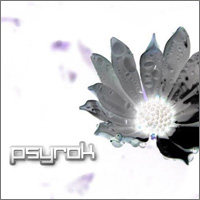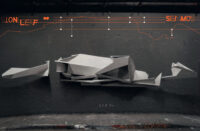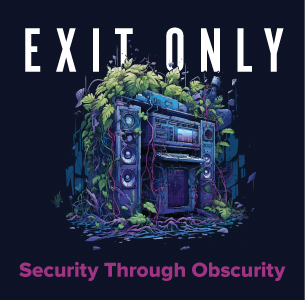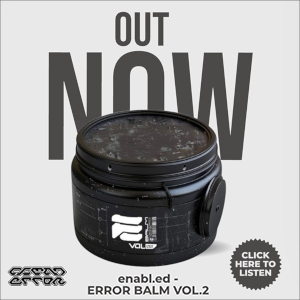
(08.17.07) “I have excellent news for the world. There’s no such thing as trip-hop. It does not exist. It’s a figment of a lame cunt’s imagination. There was never any such thing as trip-hop. It was a polite thing to say when you were trying to explain you were not into boring old rock ‘n roll but you didn’t dare to say ‘rap’ because you were afraid of getting kicked out of the fucking party and they wouldn’t let you smoke up their weed any more.” (“Figment (Intro)” on Kutmasta Kurt’s Masters of Illusion)
Trip-hop took a nasty beating in the late 1990s. Accused of a variety of sins–most notably, of being a media-created genre and therefore of not even existing–trip-hop couldn’t sustain the hype surrounding it and fizzled out when the electronica bubble burst at the turn of the millennium. But the fact remains that some of the best music to come out of the U.K. in the 1990s was labeled trip-hop. Can you imagine a world without Massive Attack, Tricky, and Portishead? Even if they’ve fallen off the cool charts in recent years, what better soundtrack was there for a living room full of disaffected city kids when the ecstasy was just beginning to kick in?
But now that it’s been more than a decade since those seemingly never-ending nights, you might find yourself thinking that the best thing about Portishead was that Beth Gibbons’s voice sounded hot. If this is the case, you should pull out Dummy and fall in love with it all over again. It’s like that gothic girl/boy you had a crush on in high school. You thought she/he’d gone off to business school and started dressing like Ally McBeal/Jerry Seinfeld, but then you run into her/him at a show, and surprise: black lipstick still turns you on.
This is all a rather long-winded introduction to this review’s central conceit: Psyrok’s eponymous debut reminds me of why I found early trip-hop to be so wonderfully atmospheric and grim. The music is painted in that moody dark purple that your gothic crush’s bedroom was painted in. Your crush would have really liked Psyrok. And you would have liked it, too, because it sounded like getting loaded and getting it on.
There’s a cinematic quality to Psyrok’s music that inspires these flights of fancy. Other listeners may find themselves tripping over an entirely different set of memories. After all, there’s a track called “Recluse demo” on Psyrok’s Myspace page that is far more Ipecac than Mo’ Wax. But this music takes me back to the mid-1990s, when it seemed like the world was on the cusp of a new era. Or maybe that’s just what it’s like to be young. As fellow Igloo reviewer Chris Lindsey wrote about Enduser’s Pushing Back, admittedly a much different sounding album but one that still inspires the same kind of reverie, “It reminds me of being high and looking out the window of a spike-wearing girl’s pink 1982 Honda Civic trying desperately to make out with her under the causeway between Sacramento and San Francisco while the most beautiful sunrise of all time happened everywhere.”
We were all young once. But we can never go home again. Only visit, with dub bass, synth, cinematically slow vocals, piano, and samples. It’s Si White’s bedroom, somewhere in New Zealand, 1994, and the air seems electric. Everyone’s smoking. Everyone’s talking. Si goes outside and sees the moon in the sky, an orb in the air, but what he hears is harder than Air, mellower than the Orb: trip-hop, Psyrok.
It’s thirteen years later, and now he’s in London, but the air is still electric. In fact, Air is everywhere, with the smooth sounds of vocoderized vocals, crooning slowly over sampled live instruments. This is “The Difference Between Silence and Lies” and “I’m Threw.”
But when he’s really cooking, he’s making late-night pancakes a la the Orb. There’s something special about a tall stack of ambient dub. When it’s just bass and a recording of a guy talking. Then maybe sung vocals. And the echo starts. And it drops down to a deep strobe, low, rumbling, until the vocals swell up again. This is “Soma” and “Fly Dub,” a silly name, but a really good song.
For those of you who skip to the very end of reviews, I’ll sum up: Psyrok is good because it’s nostalgically young. I’m glad music like this exists. But it’s 2007, and I have news for trip-hop: “Brand New You’re Retro.”
Psyrok is out now on Psylince.





















